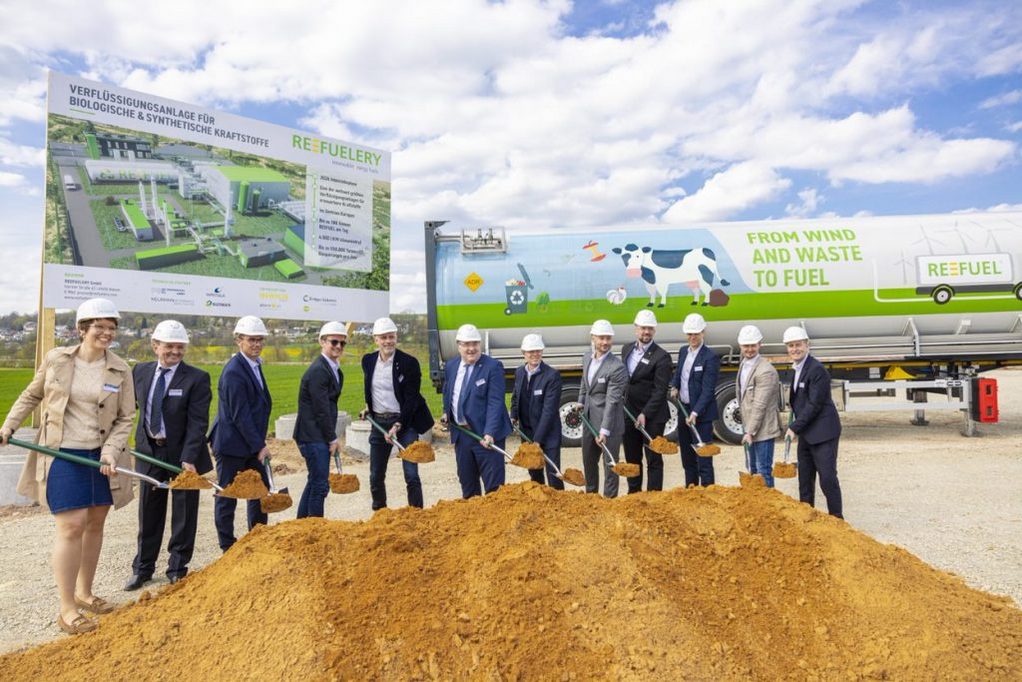Germany’s REEFUELERY, a joint venture of Erdgas Südwest and avanca, has officially started building its bio-LNG production plant worth about 50 million euros ($55 million) in Burghaun.
The groundbreaking ceremony for the facility near Fulda and with a capacity of up to 180 tons of bio-LNG per day took place.
REEFUELERY chose the location near Fulda due to its direct access to the MIDAL gas pipeline.
The bio-LNG will be used as an alternative fuel for freight and heavy-duty transportation to reduce CO2 emissions.
The plant can provide fuel for up to 4,500 heavy-duty vehicles, saving a total of up to 550,000 tons of CO2 per year compared with diesel fuel, the firm claims.
It will supply the fuel to Alternoil’s network of filling stations for trucks.
Alternoil, owned by avanca, owns a large network of LNG refueling stations in Germany.
REEFUELERY expects the bio-LNG plant, which it says is one of the world’s largest such plants, to go online in 2024.
Wartsila Gas Solutions, a unit of Finland’s Wartsila, has previously secured a contract to supply gas treatment system, liquefaction systems, control system, and motor control center for the whole plant.
Also, Germany-based industrial services provider Bilfinger will provide engineering, procurement, and construction services for the refueling facility as well as piping construction expertise.
Tags: BioLNG, CO2 Emissions, Germany, REEFUELERY



Recent Posts
TSUNEISHI Launches World’s First Methanol Dual-Fuel KAMSARMAX Bulk Carrier in the Philippines
Grimaldi Group Launches Ammonia-Ready Car Carrier Grande Shanghai in China
Incat Tasmania to Build Two Battery-Electric Ferries for Denmark’s Molslinjen
YamnaCo Signs MoU with Andhra Pradesh to Develop Large-Scale Green Hydrogen and Ammonia Project
WNTI and NEMO Sign MoU to Advance Nuclear-Powered Shipping and Mobile Nuclear Energy Solutions
TotalEnergies and CMA CGM Form Joint Venture for LNG Bunkering Operations in Rotterdam
Keel laid for Bibby Marine’s first zero-emission eCSOV
New Report Highlights Potential of Voluntary Insetting to Support Maritime Decarbonisation, Calls for Robust Safeguards